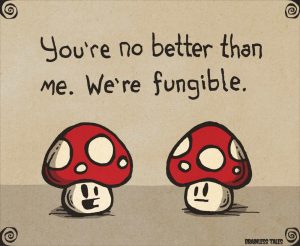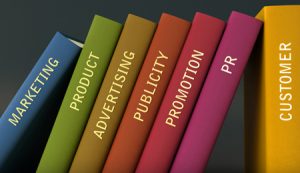This is an article I sent around on my Mailing list, amongst other things such as progress reports, art and other announcements. Please join my mailing list via this form.
IMPORTANT: Book Expo for the weekend of 8-9th Oct has been cancelled, folks. Tickets will be refunded – it’s sad, but unfortunately it’s no longer happening.
![]()
Hello all, since I’m nearing the end of my “Fabled Kingdom” series (book 3 will be finished after 2 chapters), I’ve started thinking about marketing myself and my work. As a result, I’ve decided to address a common topic as part of my research, but from a perspective that may not be common in artistic circles.
I’m writing this because “Why are indie comics so difficult to sell?“ is a question that is frequently bandied about on forums by comic book artists, but few can provide a good, straight-forward answer to it. I’m going to try to answer it from a different angle: through a business investment approach.
Why Fiction is Hard to Sell
You may be wondering what I do for a day job – I’m actually an investor, which is the family business. For that reason, I like to look at questions like “why is product X not selling?” from a business perspective, because it’s a perspective that would benefit artists a lot by understanding.

Before I continue, I should clarify something. The title for this post was originally “Why is fiction so hard to sell?“, because most indie comics also count as “fiction” even though that term is rarely used to describe comics. However, both fictional comics and fictional prose are subject to the same problems, so perhaps this article may be useful for looking at all works of narrative fiction, including movies or games.
Here’s the truth: Fiction of all kinds, including indie comics, are a “WANT”, not a “need”. As a “want”, they are also a NON-FUNGIBLE PRODUCT.
That’s just ONE reason why they’re difficult to sell in a general marketplace, but an important one if you want to understand how to market an indie comic.
What is Fungibility?

“Fungibility” is the property of a good or a commodity whose individual units are capable of mutual substitution. In other words, the likelihood of a consumer to buy one brand over another brand, because in the consumer’s mind, there’s not much difference between them. Fungibility is a spectrum, and it measures how mutually interchangeable a class of products are.
For example: If I go into a supermarket and I need some apples, I’m going to buy Pink Lady apples. If I can’t get Pink Lady apples, then I’ll buy Red Delicious apples, because I need apples, and I’m not too picky. If neither are available, maybe I’ll buy Granny Smith.
In that scenario, apples are fungible. If I want apples, I’ll buy whatever brand is available. Likewise, so is peanut butter, eggs, a pair of shorts, shampoo, pencil lead, notebook paper, etc. Most perishable items and mass-manufactured household items are fungible, because most people buying them will end up buying one anyway even if their first choice of brand isn’t available.
But Fiction Doesn’t Work That Way
 If I go into a bookstore wanting to buy “Dr Sleep” by Stephen King and they don’t have that book, I’m not necessarily going to buy a Dean Koontz book instead, even though both Stephen King and Dean Koontz are both blockbuster horror writers. Likewise, I’m not suddenly going to buy “Carrie” either, even if it’s also by Stephen King, because I’m not interested in that story.
If I go into a bookstore wanting to buy “Dr Sleep” by Stephen King and they don’t have that book, I’m not necessarily going to buy a Dean Koontz book instead, even though both Stephen King and Dean Koontz are both blockbuster horror writers. Likewise, I’m not suddenly going to buy “Carrie” either, even if it’s also by Stephen King, because I’m not interested in that story.
This is an example of how fiction, even well-known fiction, isn’t fungible.
Authors/artists may act as brands in fiction, and genres are used to direct customers to their favourite type of book, but neither of these actually make fiction fungible.
Books that are by the same author aren’t necessarily fungible, and sometimes, not even books in the same series is fungible. For example, if I want to get into the “Harry Potter” series and the bookstore doesn’t have book 1, I’m not going to go and buy book 6.
There is an important distinction to make, because fiction is different to non-fiction. Non-fiction is easier to sell than fiction, because non-fiction serves a practical, functional purpose in many people’s lives. If I want to learn how to play a guitar, or how to bake a pumpkin pie, two how-to books on the same subject is the same to me so long as they teach me what I want to know. Conversely, fiction doesn’t have the same function.
So How Do you Sell Fiction?
 This is a question that many people, myself included, struggle with. In the next article, I’m going to look at some marketing ideas, particularly passive marketing ideas, that can help sell fiction better.
This is a question that many people, myself included, struggle with. In the next article, I’m going to look at some marketing ideas, particularly passive marketing ideas, that can help sell fiction better.
Keeping in mind that fiction is a non-fungible product, there are actually advantages that fiction has over more fungible products – the key is to figure out what that is.
